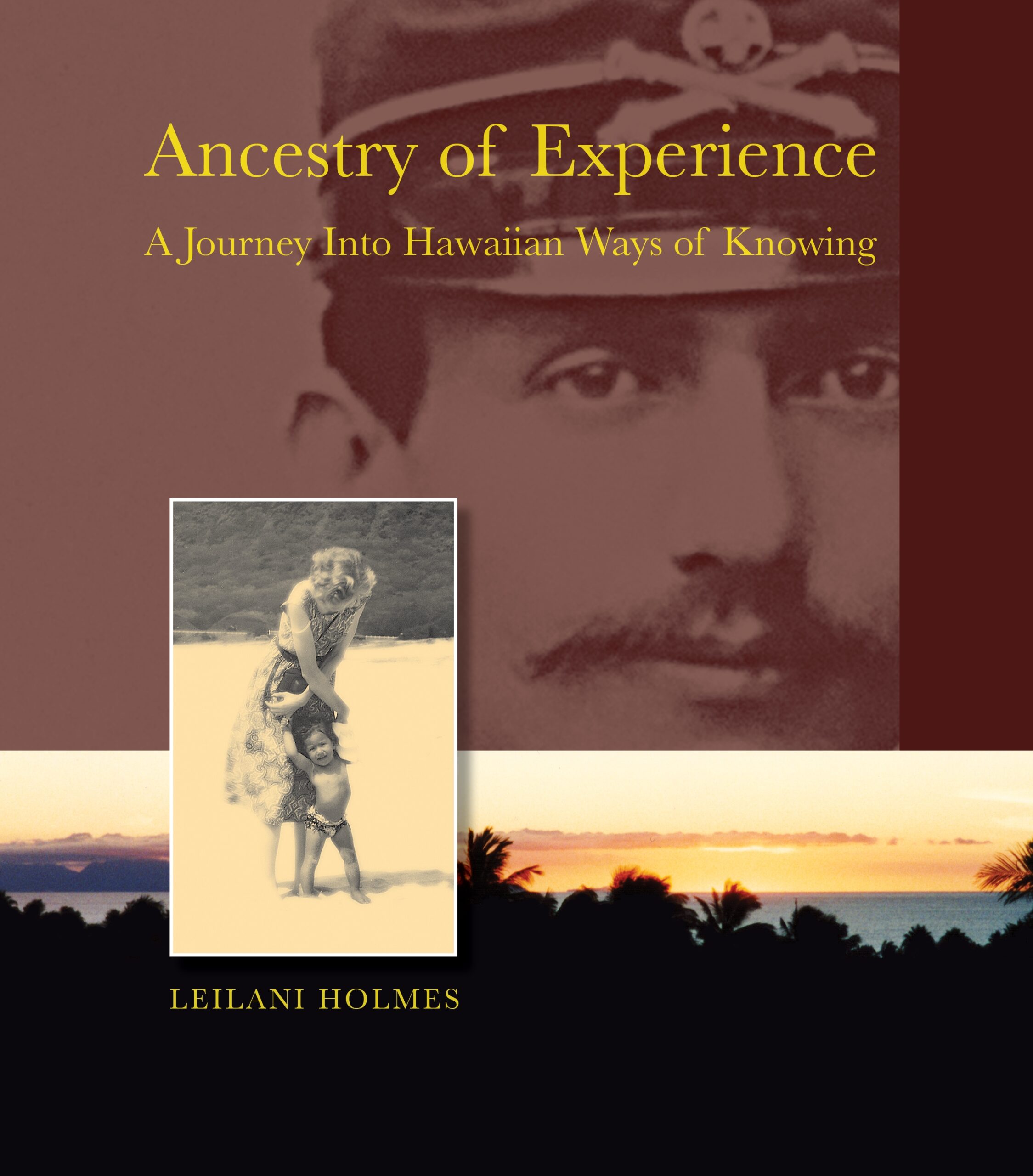Ancestry of Experience: A Journey into Hawaiian Ways of Knowing
- About the Book
-
As Hawaiians continue to recover their language and culture, the voices of kupuna (elders) are heard once again in urban and rural settings, both in Hawai‘i and elsewhere. How do kupuna create knowledge and “tell” history? What do they tell us about being Hawaiian? Adopted by a Midwestern couple in the 1950s as an infant, Leilani Holmes spent much of her early life in settings that offered no clues about her Hawaiian past—images of which continued to haunt her even as she completed a master’s thesis on Hawaiian music and identity in southern California. Ancestry of Experience documents Holmes’ quest to reclaim and understand her own origin story.
Holmes writes in two different and at times incongruent voices—one describing the search for her genealogy, the other critiquing Western epistemologies she encounters along the way. In the course of her journey, she finds that Hawaiian oral tradition links identity to the land (‘aina) through ancestry, while traditional, scholarly theories of knowing (particularly political economy and the discourse of the invention of tradition) textually obliterate land and ancestry. In interviews with kupuna, Holmes learns of the connectedness of spirituality and ‘aina; through her study and practice of hula kahiko comes an understanding of ancient hula as a conversation between ‘aina and the dancer’s body that has the power to activate historical memory.
Holmes’ experience has special relevance for indigenous adoptees and indigenous scholars: Both are distanced from the knowledge agendas and strategies of their communities and are tasked to speak in languages ill-suited to the telling of their own stories and those of their ancestors. In addition to those with an interest in Hawaiian knowledge and culture, Ancestry of Experience will appeal to readers of memoirs of identity, academic and personal accounts of racial identity formation, and works of indigenous epistemologies. A website (www.ancestryofexperience.com) will include supplementary material.
- About the Author(s)
-
Leilani Holmes, Author
Russell Leong, Series Editor
David K. Yoo, Series Editor
David K. Yoo is vice provost, Institute of American Cultures, and professor of Asian American studies and history at the University of California, Los Angeles.
- Reviews and Endorsements
-
- Holmes’s book advances our understanding of indigenous epistemologies and will be of interest to scholars examining the nature and construction of knowledge, colonialism and postcolonial theory, self-determination and the struggle for sovereignty, cultural revitalization, biculturalism, hybridity, identity formation and Pacific studies. It will also be a thought-provoking read for those investigating the politics of research methods and the relationship between researchers and those who are researched.
—Pacific Affairs - Ancestry of Experience is a welcome addition to collective efforts of reframing perspectives, cutting through the currents of assumption. Holmes is generous in offering us ways to read her story. . . . [and] opens up a welcome opportunity to trace how one can simultaneously exist in multiple spaces.
—Honolulu Weekly - Holmes’s book advances our understanding of indigenous epistemologies and will be of interest to scholars examining the nature and construction of knowledge, colonialism and postcolonial theory, self-determination and the struggle for sovereignty, cultural revitalization, biculturalism, hybridity, identity formation and Pacific studies. It will also be a thought-provoking read for those investigating the politics of research methods and the relationship between researchers and those who are researched.
—Pacific Affairs - Part memoir of a Kanaka academic in the diaspora searching for her ‘ohana, part historical and ethnographic celebration of Hawaiian culture, and part documentation of the reality of Kanaka ʻŌiwi constant communication with our kūpuna o ka pō (those who have passed into the pō), Ancestry of Experience is that rarity of rarities: an academic page-turner. Leilani Holmes’s book will bring readers to tears in its evocation of the enduring love and spiritual connection in an ʻohana that spans many generations, and make them gasp at the incredible series of ‘coincidences’ that leads to Leilani’s re-connection with herʻohana.
—Noenoe Silva, professor of political science, University of Hawai‘i, and author of Aloha Betrayed: Native Hawaiian Resistance to American Colonialism
- Holmes’s book advances our understanding of indigenous epistemologies and will be of interest to scholars examining the nature and construction of knowledge, colonialism and postcolonial theory, self-determination and the struggle for sovereignty, cultural revitalization, biculturalism, hybridity, identity formation and Pacific studies. It will also be a thought-provoking read for those investigating the politics of research methods and the relationship between researchers and those who are researched.
- Supporting Resources
-





